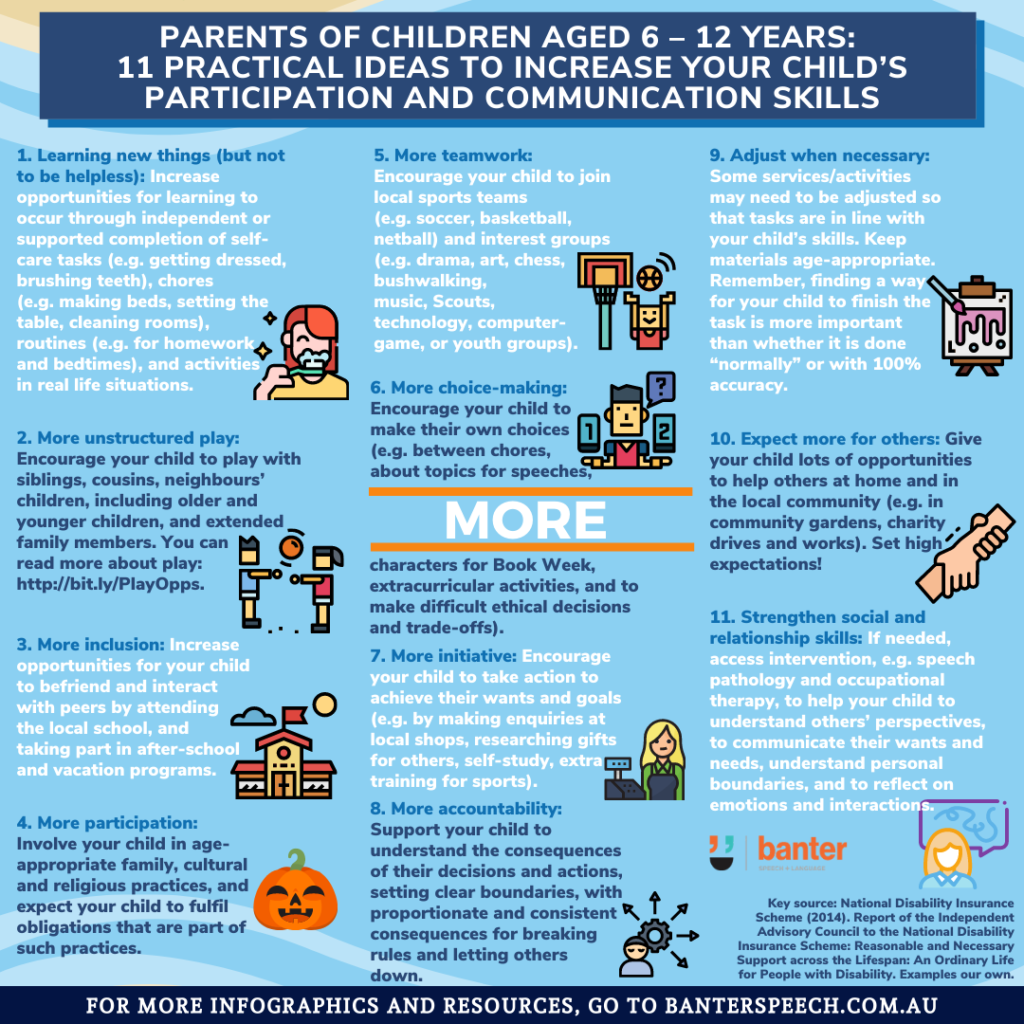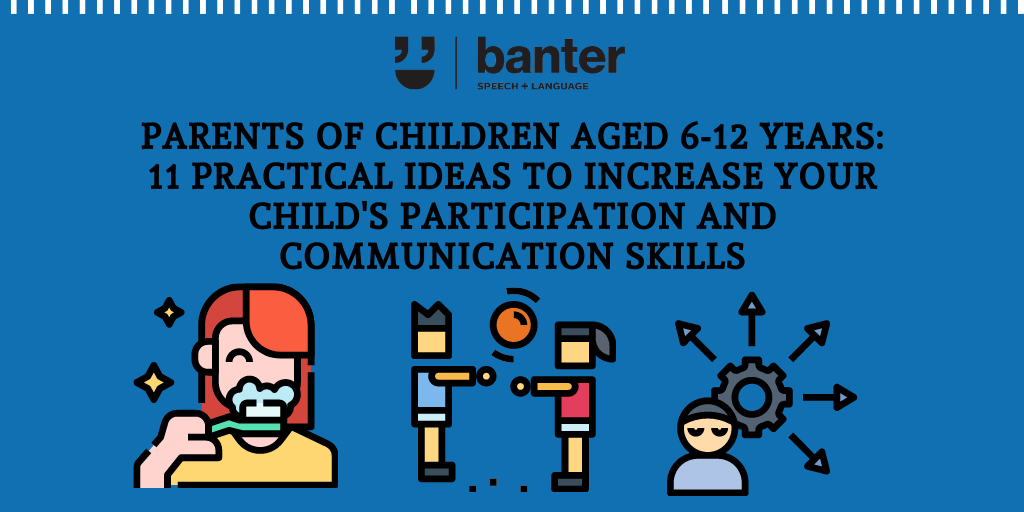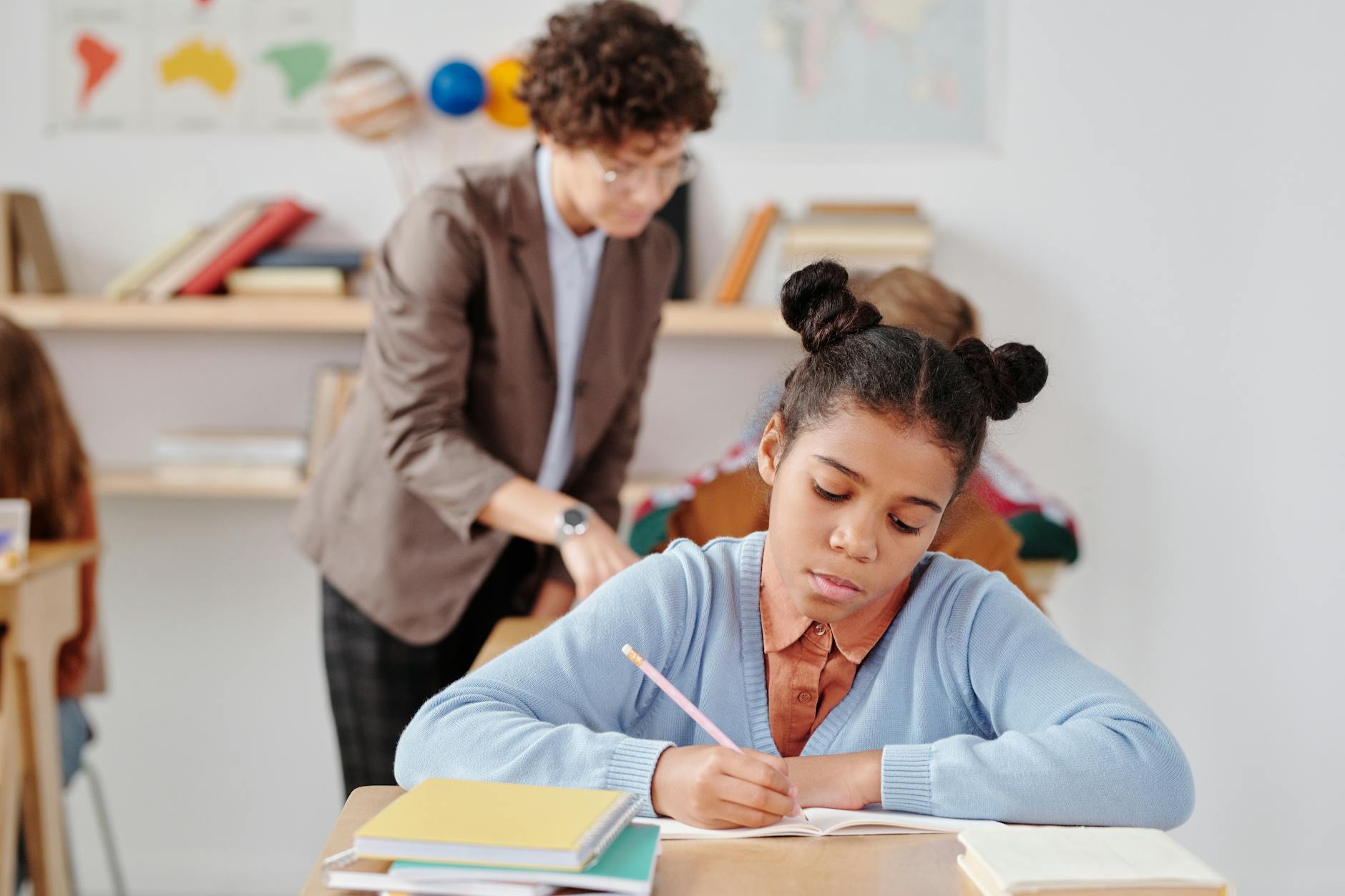Parents of children aged 6 – 12 years: 11 practical ideas to increase your child’s participation and communication skills
In this, our fourth infographic on functional communication, our speech pathologist Emma Robinson, outlines 11 practical ideas parents of children aged 6-12 years can use to increase their child’s participation and communication skills.
- Learning new things (but not to be helpless): Increase opportunities for learning to occur through independent or supported completion of self-care tasks (e.g. getting dressed, brushing teeth), chores (e.g. making beds, laying the table, cleaning rooms), routines (e.g. for homework and bedtimes), and activities in real life situations.
- More unstructured play. Encourage children to play with siblings, cousins, neighbours’ children, including older and younger children, and extended family members. You can read more about play: here.
- More inclusion: Increase opportunities for your child to befriend and interact with peers by attending the local school, and taking part in after-school, and vacation programs.
- More participation: Involve your child in age-appropriate family, cultural and religious practices, and expect your child to fulfil obligations that are part of such practices.
- More teamwork: Encourage your child to join local sports teams (e.g. soccer, basketball, netball) and interest groups (e.g. drama, bushwalking, art, chess, music, Scouts, technology, computer-game, or youth groups).
- More choice-making: Encourage children to make their own choices (e.g. between chores, about topics for speeches, characters for Book Week, extracurricular activities, and to make difficult ethical decisions and trade-offs).
- More initiative: Encourage your child to take action to achieve their wants and goals (e.g. by making enquiries at local shops, researching gifts for others, self-study, extra training for sports).
- More accountability: Support children to understand the consequences of their decisions and actions, setting clear boundaries, with proportionate and consistent consequences for breaking rules and letting others down.
- Adjust when necessary: Some services/activities may need to be adjusted so that tasks are in line with your child’s skills. Keep materials age-appropriate. Remember, finding a way for your child to finish the task is more important than whether it is done ‘normally’ or with 100% accuracy.
- Expect more for others: Give your child lots of opportunities to help others at home and in the local community (e.g. in community gardens, charity drives and works). Set high expectations!
- Strengthen social and relationship skills: If needed, access intervention, e.g. speech pathology and occupational therapy, to help your child to understand others’ perspectives, to communicate their wants and needs, understand personal boundaries, and to reflect on emotions and interactions.

Key source:
National Disability Insurance Scheme (2014). Report of the Independent Advisory Council to the National Disability Insurance Scheme: Reasonable and Necessary Support across the Lifespan: An Ordinary Life for People with Disability. Examples our own.
Related infographics:
- Focusing speech therapy on functional outcomes: a refresher
- Not about ‘fixing’: using the ‘F-word Framework’ to support children with communication disorders and their families
- Parents of children aged 0-5 years: 10 practical ideas to increase you child’s participation and communication skills
- Parents of teenagers aged 13 – 15 years: 10 ideas to increase participation and communication skills
- Parents of teenagers aged 16-18 years: 11 ideas to increase participation and communication skills

Hi there, I’m David Kinnane.
Principal Speech Pathologist, Banter Speech & Language
Our talented team of certified practising speech pathologists provide unhurried, personalised and evidence-based speech pathology care to children and adults in the Inner West of Sydney and beyond, both in our clinic and via telehealth.








